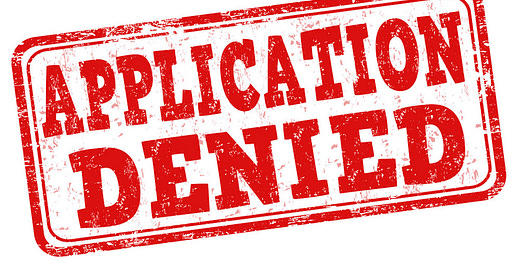Have you ever traveled in Europe? Did you notice the huge numbers of street performers in the major cities? Did you talk to any of them? (It’s easy because they all speak English.) You find Czech musicians in Brussels, Peruvians in Paris, Americans in Berlin… Many of them are really good. And most of them don’t need a visa to do it. At most, they need local work permits issued by the city where they are hanging out and performing.
How many street performers are there in American cities? I have gone entire days in New York, Chicago and San Francisco without seeing any. If you find any, they are mostly Americans. There is a reason for this. Working as a musician in the U.S. requires a special kind of visa, and it is very difficult to get.
The highest level of visa for performing artists, the P1, requires that you produce references from top people in the music world, press clippings showing you are a star, and other documentation that you are a Very Important Artist. It also comes with the understanding that you will pay U.S. taxes on your earnings. If you are taxed in your home country as well, tough noogie. Other tiers of performing arts visas require proof of formal employment, or testimonials from formal music organizations or academic institutions that you are here as part of an important “cultural exchange”.
A good amateur musician who just wants to finance a backpacking tour across the U.S. by “busking” is out of luck. F1 or J1 Student visa? Performing for quarters is illegal and will get you banned from returning to the U.S., if you are even allowed to stay in the first place (some F1 and J1 holders caught busking get deported forthwith). Even if you aren’t deported, if you ever had hopes of becoming a U.S. resident, you can kiss those goodbye. P3 visa? You’ll never recoup the cost of getting it in the first place, and besides, it will take you half a year to get it approved.
So, why is it like this? The truth is, the rules are not in place to nab scruffy students busking for spare change. The buskers are just collateral damage. The rules are there to protect the American music industry and its roster of performers. China and Iran are the only other major economies which pose such arbitrary and punitive barriers to foreign artists (there are a few smaller countries which do so).
China’s motivation is that they are paranoid about dangerous political content and threats to the regime. The Iranians have a major bug up their asses regarding religious purity. Ok that’s plenty bad. The U.S. is, in some ways worse: There is not even a twisted social logic to it. We are just protecting our entertainment industry from competition (the rules affect stage performances and recorded material of all kinds, not just music.)
The restrictions on visiting artists and foreign music are not an accident. They were put in place specifically in response to lobbying by the big U.S. record labels and Hollywood studios. In fact, their lobbyists make the lobbyists for our heavy industries look like amateurs. The only reason there are cracks in the wall today is youtube. The major paid streaming services have hard choices to make about hosting foreign content. Spotify and Netflix have very different catalogues if you access them from the UK or Germany vs. when you access them in the U.S. Even youtube isn’t immune—a lot of foreign content is blocked in the U.S. and, increasingly, vice-versa.
This situation has consequences beyond the simple unfairness to foreign artists. It is unfair to the American music listener. As we know from other fields, lack of competition leads to lack of innovation. The U.S. music industry is living proof. The top stars today all do music that sounds the same, plumbs the same themes (mostly their own narcissism) and is catchy but not much more. The truly innovative artists in pop, soul and rock are literally in their geriatric years, as you will see if you look at the lists of headliners at major music festivals.
The major American innovation in music in the past 40 years is hip-hop. And hip-hop is the exception that proves the rule: All of the major labels refused to work with rap artists, so they had to go start their own labels. I’m not a fan of hip-hop, but I greatly respect what they had to do to break through against the industry’s resistance. They should not have had to fight so hard. Now that they have become the dominant style of music here, they too benefit from our protectionist laws.
Your thoughts on this issue? Does it matter? Why or why not?
More to follow, including a lot of music from all over the place.



